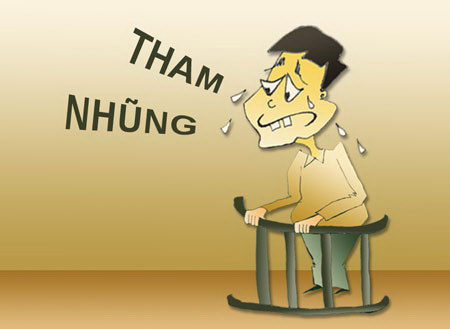Expanding the scope of anti-corruption
It is not uncommon for the private sector to be a shelter, a "backyard", or even a "money laundering pool" for corrupt officials in the public sector.
The Draft Report on the Law on Anti-Corruption (amended) prepared by the Government Inspectorate and reviewed by the Ministry of Justice has significantly expanded the scope of regulation compared to before, including handling of people with corrupt acts; handling of relevant agencies, organizations and individuals; and handling of assets and income that are not reasonably explained.
 |
| Illustration photo |
In addition to the subjects prescribed by current law, the concept of "person with position and authority" has also been supplemented with the subjects "person holding the position of Chairman of the Board of Directors, member of the Board of Directors, General Director, Director, Head of the Supervisory Board, Chief Accountant of a public company, credit institution, investment fund" and "Chairman, General Secretary, Chief Accountant, Head of the Inspection Board of a social organization".
Regarding acts of corruption, although the provisions on acts of corruption are basically kept the same as the current law, the draft law has been revised and clarified to be consistent and consistent with the provisions of the Penal Code on corruption crimes.
This change reflects the spirit of gradually expanding the scope of the law to organizations and enterprises outside the state sector. It must be said that this is a very correct policy. Corruption in the non-state sector is also becoming serious and complicated, but has not been regulated by the Law on Anti-Corruption (PCTN). If the private sector is not included in the subject of regulation and control, the effectiveness of PCTN in the public sector will be significantly reduced, because in reality, there is always a close connection between public-private relations in many fields, in the form of "communicating vessels".
It is not uncommon for the private sector to be a refuge, a “backyard”, or even a “money laundering pool” for corrupt officials in the public sector. Anti-corruption efforts will not be effective if the private sector is ignored; conversely, anti-corruption in the private sector is also anti-corruption in the public sector.
In addition, the Penal Code has now expanded its scope of regulation to include the non-state sector (for four crimes: embezzlement, bribery, bribery acceptance and bribery brokerage), and at the same time, it stipulates the criminal liability of legal entities. Directive No. 50-CT/TW dated December 7, 2015 of the Politburo on strengthening the Party's leadership in detecting and handling corruption cases and cases requires unification of regulations on corruption between the Penal Code and the Anti-Corruption Law. The United Nations Convention against Corruption also requires anti-corruption in the private sector. Therefore, it is very necessary to expand the scope of regulation of the Anti-Corruption Law to the non-state sector.
However, the expansion needs to ensure feasibility, based on the development status and management requirements for the non-state sector as well as the ability to control this sector. Therefore, the drafting agency has chosen the immediate option of mandatory application of a number of anti-corruption measures for the group of subjects including: public companies, credit institutions and investment funds.
The reason for choosing public companies, credit institutions, non-public service units and investment funds to implement first is because these are groups of entities in which there is a clear separation between owners and managers in the governance and management mechanism. From there, managers are at risk of taking advantage of their assigned positions and powers to commit corruption. For other non-state organizations and enterprises, the law provides principled regulations on anti-corruption to be implemented in accordance with the characteristics of business activities and stipulates the inspection and examination regime according to the management authority of the industry and field.
According to VOV

